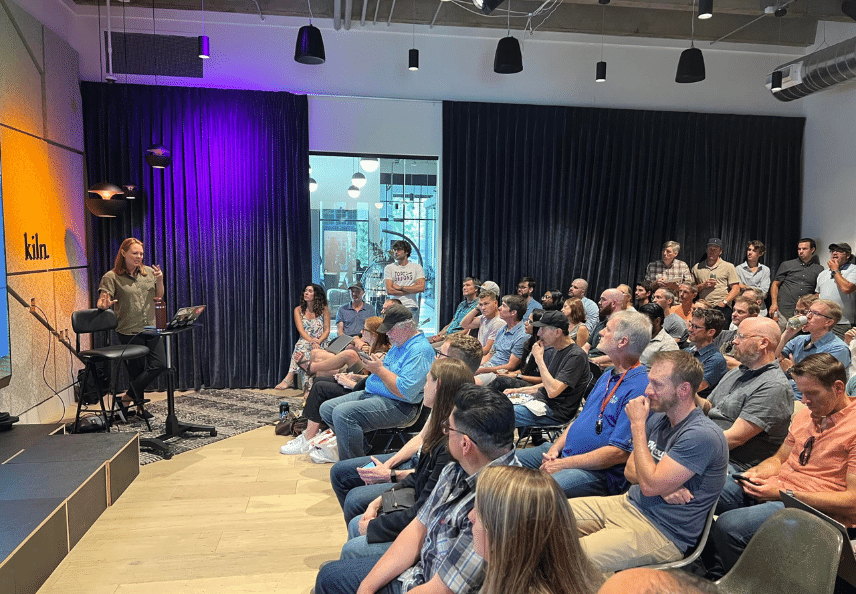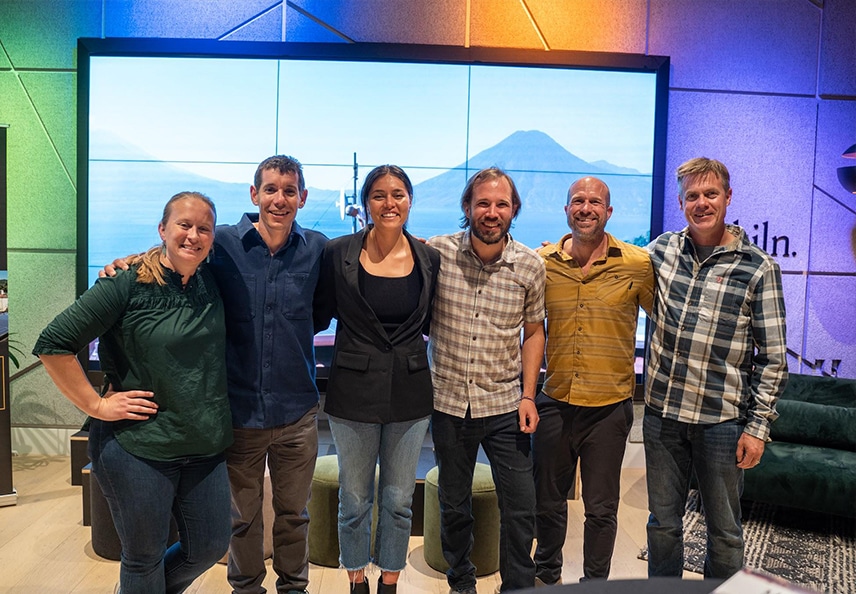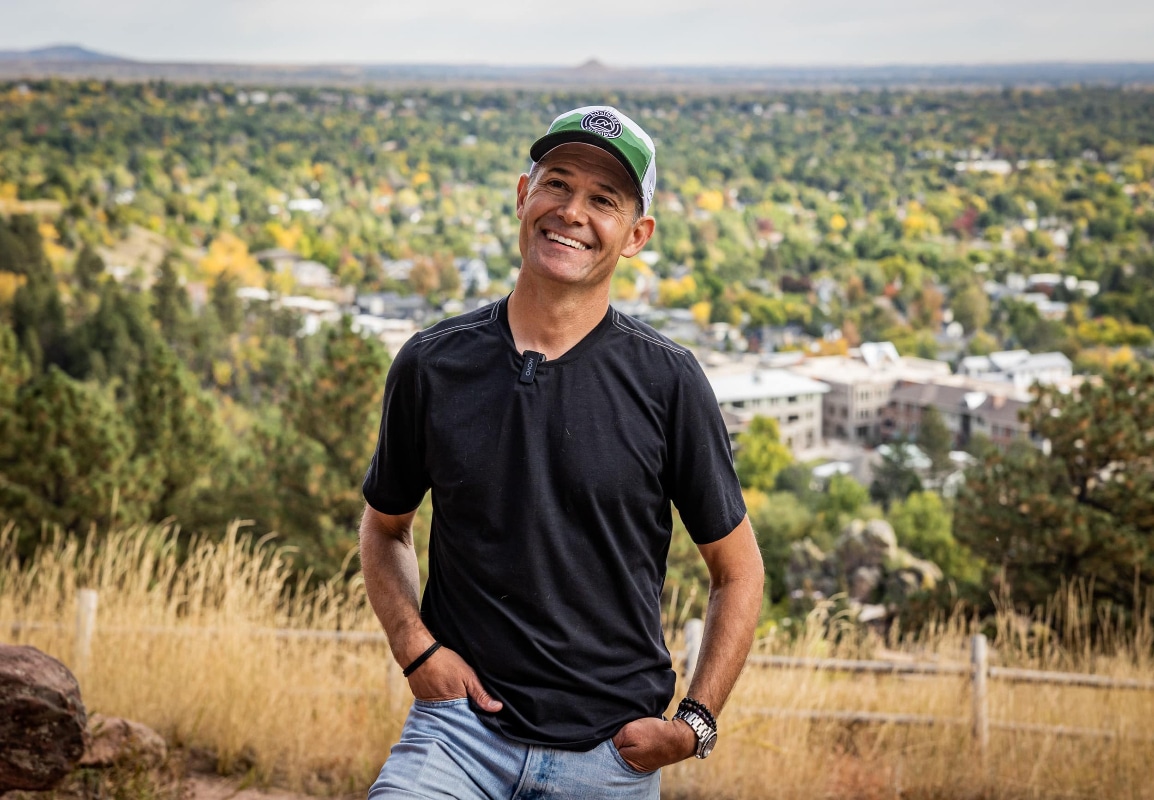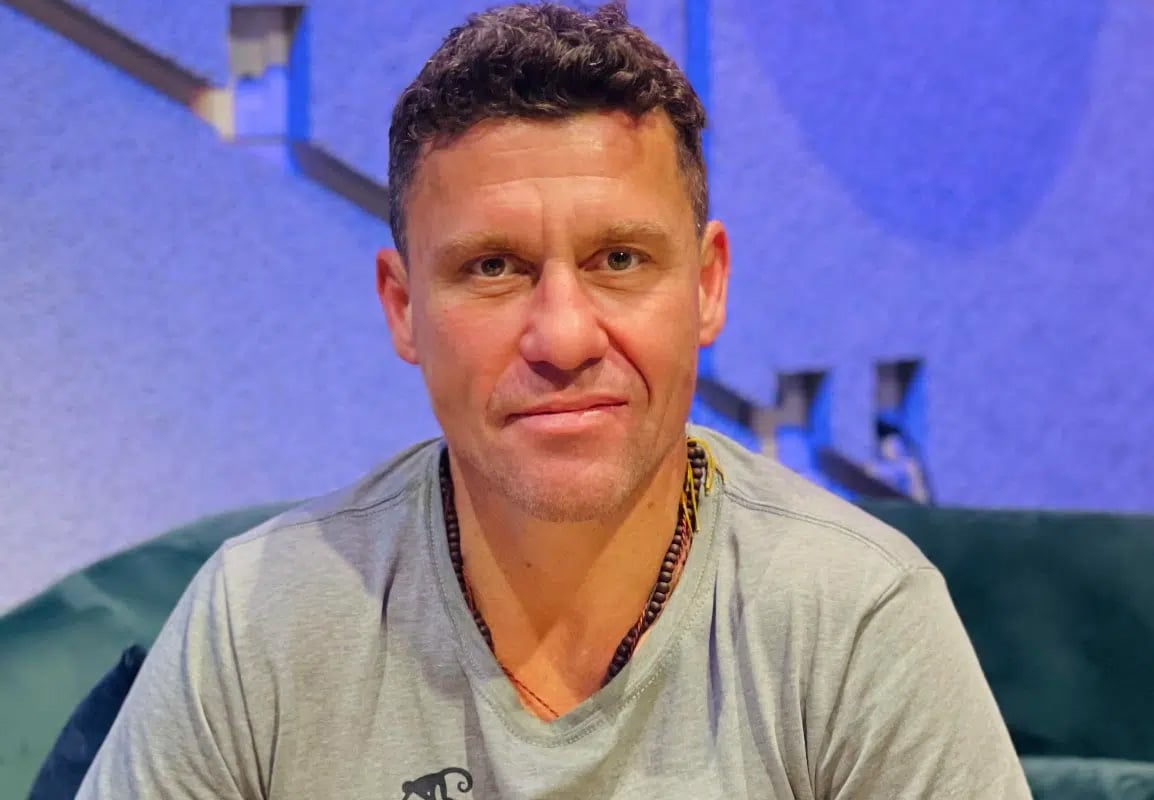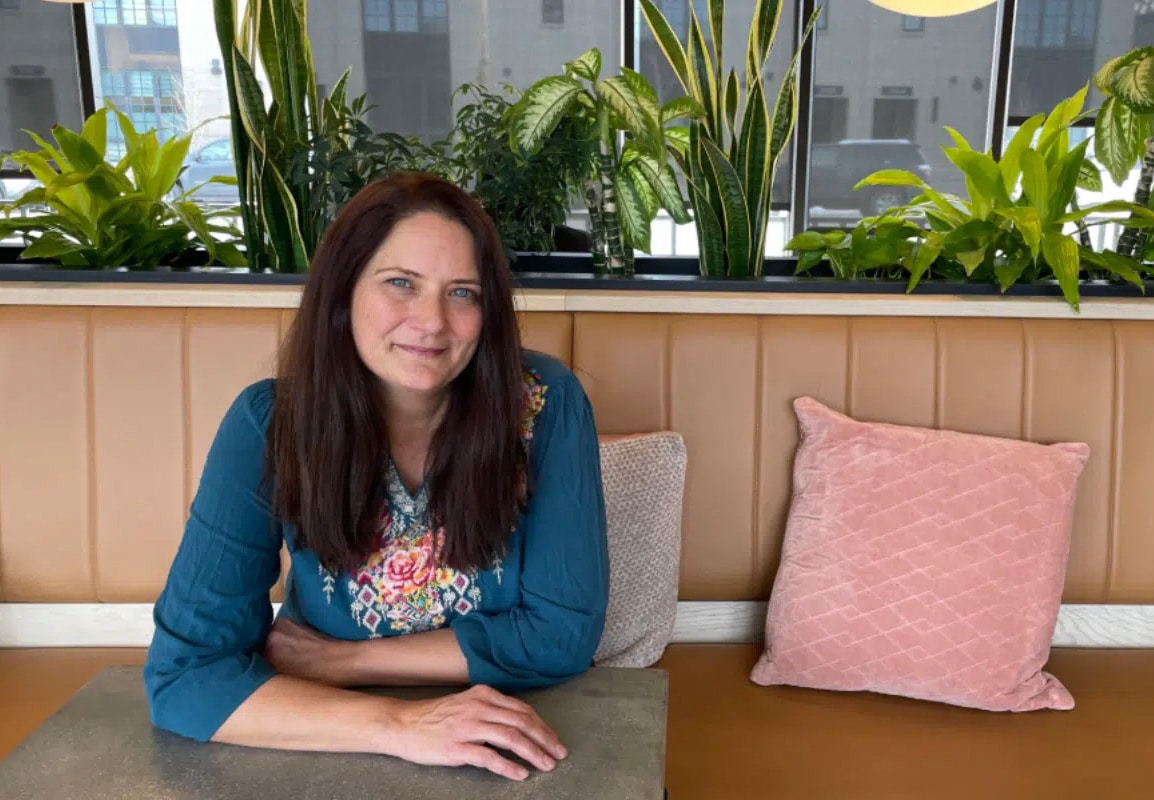Enter Kiln on the second Wednesday of each month, and you might find discussions ranging from state-of-the-art transformer architectures and neural network optimizations to advanced generative models in healthcare. In parallel, eager investors await amongst hundreds of attendees, scouting the next big idea—highly attuned to emerging innovations as we enter a new chapter where human-robot integration will transform the future of work forever.
Taking a step back from the intricacies of LLM frameworks and algorithmic optimizations, the Boulder AI Builders group represents entrepreneurship at its finest—a monthly showcase of driven, forward-thinking, and exceptionally talented individuals eager to present their innovations.
Boulder’s AI scene has become a hotbed of AI entrepreneurial energy. Thanks to Boulder’s unique pulse—leading tech giants, a forward-thinking university, and a continually evolving community—there lies an undeniable and compelling sense of anticipation for what’s coming next.
Facilitated by three leading local organizations, including Freeplay, Matchstick, and Ombud—we caught up with a few entrepreneurs who showcased their work at the latest event to learn how the community influences their efforts and how their technology will shape the future. Read more below.
Nathan S. Robinson, Plotzy: uses AI to streamline access to essential municipal real estate data, making it easier for professionals to make informed decisions.
How is AI helping Plotzy work with large amounts of real estate data?
Beyond single-family homes, the information needed for the real estate industry to make critical decisions generally lives at the municipal level, lacking a consistent format and consolidated access, leading to significant information inefficiency. This is where AI comes in. At Plotzy, we’re addressing these inefficiencies by combining offline and online use of open-source LLMs like Llama, foundation models from OpenAI, and advancements like agentic AI and RAG. This allows our customers to quickly find the information they need, use AI to interpret complex documents, and significantly boost productivity. These technologies not only speed up existing workflows but also enable a fundamental rethinking of how deals are made in the industry.
What makes Boulder an ideal hub for developing and scaling AI-driven solutions in the real-estate space?
Boulder and Denver have been a great environment to build Plotzy. Well-known reasons include great universities that produce educated students and a strong venture capital and startup ecosystem where like-minded entrepreneurs and technologists can find resources, collaborate, and connect. But there’s something even more foundational—the people. Though smaller in population than other tech hubs, Denver and especially Boulder have a high concentration of smart, ambitious, yet down-to-earth individuals. This is why there’s such a thriving, supportive, and collaborative ecosystem. At meetups like the Rocky Mountain AI Interest Group or the Boulder AI Builders, people openly share their AI advancements and challenges. We all learn and benefit from this collective knowledge and experience. It’s beautiful.
Anneliese Niebauer, ShowStop: helps marketers measure, produce, & optimize data-driven ad creatives using AI.
How did you come to the idea of ShowStop and how has being part of the Boulder tech community influenced the growth and innovation of ShowStop?
I met my co-founder during Antler’s Boulder Spring cohort. We both love helping small businesses grow, and we’re big on AI and short-form video. We started with a hunch that AI could make content production easier and cheaper for small businesses. After chatting with over 100 business owners in Colorado and beyond, we knew we were onto something. That’s how ShowStop was born.
Boulder’s been amazing for us. Our first two paying customers came from local connections. The tech meetups here, like RMAIIG and Boulder AI Builders, keep us sharp on AI developments. Plus, the support from other founders in town is priceless. Building a startup is tough, especially in this market, but the Boulder community keeps us going.
Nadia Eldeib, CodeYam, software simulator that accelerates software teams.
How do you see software simulation shaping the future of technology? Can you share some examples?
Software simulation is poised to transform technology by enhancing the intersection of AI and software development. NVIDIA’s CEO Jensen Huang noted, “Software is eating the world, but AI is going to eat software,” underscoring the growing role of AI in code creation. CodeYam aims to build the first robust software simulator, a crucial tool for those who create software, especially as AI increasingly generates code through tools like AI copilots.
Beyond coding, software development requires understanding, testing, and demoing changes to ensure quality, a process that becomes more complex as organizations grow. Software simulation simplifies this by making it easier to comprehend code changes and their impact on user experience. This accelerates onboarding, improves code review, and enhances collaboration among teams. For example, during pull request (PR) reviews, simulations allow teams to visualize and interact with code changes across various scenarios. These are generated by default by CodeYam’s AI, but teams also have full control to edit or add scenarios and have them saved to their test suite and run automatically in the future.
Ultimately, software simulation can accelerate development, improve quality, and reduce costs, transforming how we create and maintain software for faster, better product delivery.
In what ways has the Boulder tech ecosystem played a role in shaping the AI advancements at CodeYam
I’ve been truly inspired by the Boulder tech ecosystem as a founder working at the intersection of software and AI. At the recent Boulder AI Builder Meetup, I presented the first-ever live demo of the CodeYam software simulator and received incredible support, feedback, and insightful questions. It was an honor to demo alongside an all-star lineup, including founders and experts from Google and NVIDIA, and to connect with other builders, founders, and operators.
I also attended the Mastering AI in Product Development event at Kiln, which featured thoughtful presenters at the forefront of design, engineering, and product development. Although I’m new to Colorado, the Boulder tech community has made me feel welcome, and I’m excited to continue contributing to this amazing ecosystem.
Leadership Driving Boulder’s AI Revolution
Finally, we asked Natty Zola of Matchstick Ventures, a firm specializing in venture capital for startups, to share his insights on why Boulder is emerging as a leader in AI and his vision for the future of the industry in the region.
Why do you believe Boulder has become a key location for AI development and innovation?
NZ: This community has always been on the forefront of and curious about new technology. The culture celebrates innovation and entrepreneurship and so with a new computing platform (AI), the community was quickly engaged. We have a lot of builders here so naturally everyone wanted to start playing with the technology and start building products. It’s been fun to see the community come together to share, learn and grow together.
What trends or companies are you most excited about?
NZ: Specifically within AI, we’re so early in the deployment of this new technology it’s hard to predict what people will build with it, the most fun part is seeing the creativity of the local builders and how they’re using the technology in their existing products or building totally new products.
What do you envision for the future of AI in Boulder over the next 5-10 years?
NZ: I see Boulder being a leader in the application of AI, just like it is in many other areas of innovation: traditional software, natural products, outdoor recreation, etc. We have a ton of smart people here, they’ll naturally build cool and exciting things. Some of those things will get national attention, some will just be fun side projects, but whatever comes from each person’s ideas, we’ll collaborate as a community to help them be successful. What’s the saying? We overestimate what we can do in a year but underestimate what we can do in 5-10 years? I bet that’ll happen here.




